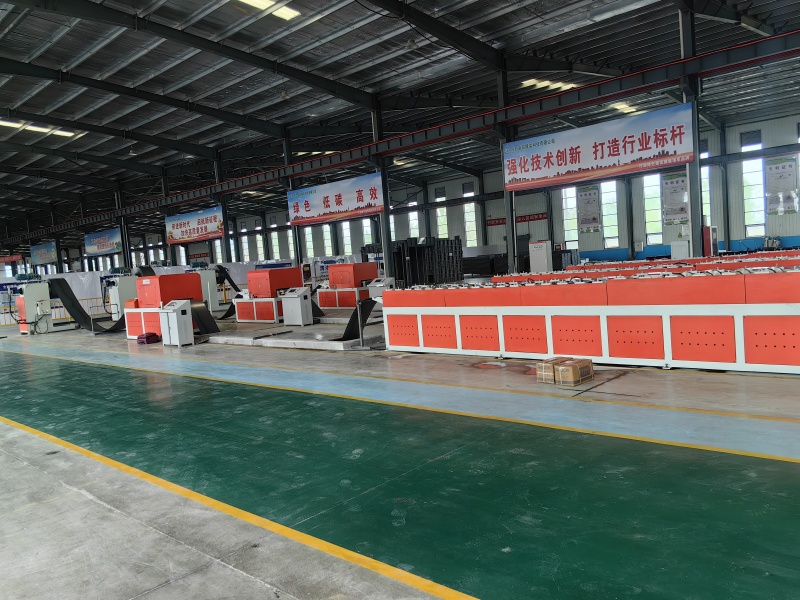Hotline
+86-136 8495 9862
Email:cennia@szmizhi.com
Add::104,Building 27,Third Industrial Zone, Longxi Community,Longgang District,Shenzhen,China.
Coil Forming & Handling Equipment
Surface Treatment Equipment
Solutions
Application
About Us

Welcome to MIZHI
For consultation/feedback, please call the service hotline: +86-136 8495 9862 Email:cennia@szmizhi.com

The Shift Towards Sustainable and Circular Economy in Roll Forming

The shift towards sustainable and circular economy practices in the roll forming industry is becoming increasingly important as manufacturers seek to reduce environmental impact while meeting growing market demands. Here are the key aspects and impacts of this trend:
1.Adoption of Energy-Efficient Technologies: Roll forming machine manufacturers are focusing on developing energy-efficient designs to reduce power consumption during production. These advancements not only lower operational costs but also contribute to sustainability goals.
2.Recycling and Waste Reduction Initiatives: The industry is increasingly adopting recycling programs and waste reduction strategies. For example, some companies are optimizing roll forming processes to minimize material waste, while others are recycling scrap metal to reduce the overall environmental footprint. Eco-conscious startups are also contributing by designing machines specifically for recycling aluminum and steel scrap.
3.Use of Eco-Friendly Materials: There is a growing emphasis on using sustainable materials in roll forming processes. This includes the development of advanced alloys and coatings that are both durable and environmentally friendly.
4.Integration of Circular Economy Principles: Manufacturers are incorporating circular economy principles by designing roll forming machines and processes that support the reuse and recycling of materials. This approach helps in reducing waste and promoting a more sustainable manufacturing lifecycle.
5.Regulatory Compliance and Market Demand: Increasing regulatory requirements and consumer demand for sustainable products are driving roll forming companies to adopt greener practices. This includes compliance with environmental standards and the development of products that meet sustainability criteria.
6.Innovation in Sustainable Manufacturing: The industry is witnessing significant innovation in sustainable manufacturing solutions. For instance, companies are investing in technologies that enable the production of lightweight, high-strength metal components, which not only improve fuel efficiency in automotive applications but also reduce material usage.
7.Collaboration and Partnerships: To accelerate the adoption of sustainable practices, roll forming machine manufacturers are collaborating with industry peers, technology partners, and research institutions. These partnerships facilitate knowledge sharing and resource pooling, driving the development of more sustainable solutions.
8.Future Outlook: As the roll forming industry continues to grow, driven by increasing demand for lightweight and durable metal components, the integration of sustainable practices will become even more critical. Manufacturers who prioritize sustainability are likely to gain a competitive edge in the market.
In summary, the shift towards sustainable and circular economy practices in the roll forming industry is driven by technological advancements, regulatory pressures, and market demand. By adopting energy-efficient technologies, recycling initiatives, and sustainable materials, roll forming companies can contribute to a more environmentally friendly manufacturing landscape while meeting the evolving needs of their customers.